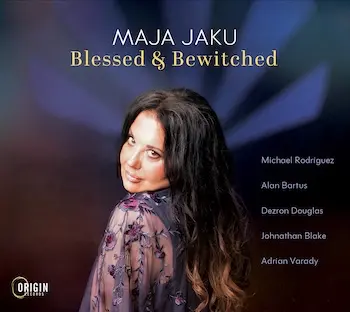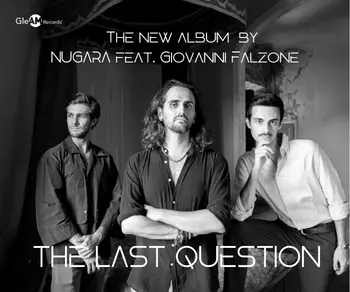Mark Masters Ensemble: Dance, Eternal Spirits, Dance! (Capri Records 74176-2)
On the basis of the evidence this album provides, tenor sax player Billy Harper should be at last nine times better known and better appreciated than he is. As it is he might qualify as a musician’s musician, and he obviously doesn’t attract the marketing bucks anywhere near as much as a great many younger far less talented faces do. That’s an injustice to add to the many that already demean this world, and while this album is far from sufficient when it comes to trying to correct that it does offer further evidence in his favour in the form of his compositions (arranged by Masters) and played by Harper (as principal soloist) and an ensemble at the top of their respective games.
Croquet Ballet, for example, has much to offer the receptive listener beyond titular intrigue. Harper’s solo is that of a musician who has long since got beyond the process of absorbing his influences, something which is not by any means universally guaranteed, and while he delves into various registers he never does so to the effect of detracting from the poise and depth of the overall performance.
If One Could Only See exhibits a depth of lyricism that’s far less common on record than it used to be and is enhanced in no small measure by Francesca Tanksley, who’s been Harper’s pianist of choice for the last 42 years. Masters’ arrangement is notably empathetic in the sense that it serves the composition and is entirely free of gestural flourishes, empty or otherwise.
The Seventh Day is where Masters’ art comes into even sharper focus as the arrangement seems to serve as a stimulant in itself for soloists Harper and trumpeter Tim Hagans. The former is garrulous, eager to communicate, while the latter takes a contrastingly measured approach, giving the music some air.
PlainsPeak: Someone To Someone (Irabbagast Records 032)
This year so far has found saxophonist Jon Irabagon on something of a roll. I reviewed his Server Farm album not so long ago, and if I still contributed to end-of-year polls I suspect that would be one of my nominations. As the ostensible leader of PlainSpeak, a two horns/two rhythm quartet in keeping with the precedent of the Ornette Coleman quartet with Don Cherry, Irabagon presides over an album that takes a step or two away from whatever the cutting edge amounts to these days and fits right in with the free-bop strand of the tradition, a point arguably underscored by the fact that he sticks to playing the alto sax throughout.
In a sense, the album’s success rests upon a group thinking as one. The opening title track might be an update of the kind of singular melancholy that Coleman captured at different points in his compositional output, but at the same time it incorporates a strain of free playing that stays within relatively conventional parameters, with trumpeter Russ Johnson evoking the spirit of Alan Shorter.
The mutant swing of At What Price Garlic, a title that surely could be nominated if an award was handed out for Most Cryptic Title, documents a group attuned to the discontinuities between the composed and the improvised, which it negotiates with aplomb. Irabagon’s solo serves to remind us of the relative singularity of his alto voice and the extent to which he has something to say in this familiar domain.
The Pulseman reins in the level of activity, and the restraint this implies enables the group to document another facet of its art, namely one alert to nuance, although the work of drummer Dana Hall sounds almost machine-tooled when it comes to maintaining activity and keeping the quiet at bay.
Joanna Eden: The Road To Paysandu (Mr. Riddles Music MRM 12224)
My largely uninformed guess is that in such a culturally conservative era as this the “lighter” end of the jazz crossover field is very densely populated. Should that be the case then this album is competing in a necessarily restricted field in which musicians are competing for the attention of a fickle, perhaps undiscerning audience that desires only music that serves as some kind of “wind down”.
If so then this is a shame. Eden is undoubtedly a singer of more than average interpretive ability, but my jaded ear is unable to discern much in the way of range in this album largely made up of originals, and while a title like Just About Holding On might suggest an attempt at dealing with one of those situations that can darken all our lives, an accordion solo serves to suspend that interpretation and the grit-free smoothness of the performance serves to keep this reviewer at greater than arm’s length.
Kindness Of A Friend, again as far as I can hear, has a lyric that tacks closely to the platitudinous. The sunniness which is a mark of the album generally takes centre stage on this one, as does the absence of anything likely to startle even the most highly strung horse. The brief guitar solo rides over the backbeat without rippling the music’s surface one bit.
On The River Plate fits in nicely with the rest of the set, but I’m at a loss as to what to write about it beyond stating that for me the song embodies an undemanding listening experience complete with “clean” production, the like of which is simply not permissive of anything outside of a narrow emotional bandwidth. I’ll stop writing now as this review is nothing if not unhelpful, to anyone.




